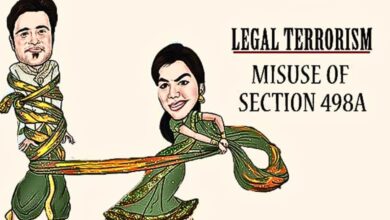Govt’s social media hub plan could turn India into ‘surveillance state’: SC

Raising question over the government plan to track social media accounts of citizens, the supreme court said the social media monitoring plan would make India into a ‘surveillance state’.
“We will become a surveillance state,” Justice DY Chandrachud said in a response to PIL filed by Trinamool Congress MLA Mahua Moitra.
A surveillance state is defined as a state which legally surveils all actions, locations, and friends of its citizens, in order to prevent crimes or in order to solve them faster. Nevertheless, the term has negative connotations and dangerous implications for citizen’s privacy.
In April, the Information and broadcast ministry had invited bids from private parties to create a tool that will trawl through a person’s public profiles and social media content.
In a single system providing real-time insights, metrics, and other valuable data, the tender document mentioned.
The Ministry social media communication hub plan primarily intends to tap into social media chatter to create a 360-degree profile of the user. Access pieces of information in the private domain such as Facebook, Twitter including email.
Data gathered will be used to mould public views and create nationalist feelings. It will make predictive analyses about perceptions and mood of the public.
However, the PIL appealed to stop the plan.
“A citizen cannot exercise her right to free speech with the knowledge that the state and its agents are monitoring every word uttered by her, maintaining records and logs of the same and using them to profile her,” ET quoted the PIL as saying.
The bench has asked the government to reply to the court notice within two weeks. It also asked the government to submit data protection law.
This is not first such move by the government. Earlier, Entrackr had reported that the government is working on a screening system, involving seven steps, for all appointments in govt institutions. The screening will begin with the candidate’s digital footprint and culminates with a final nod from the Prime Minister’s Office (PMO) in successful cases.
Following the data leaks by social media giants and third parties, data privacy became centre stage of debate in the country. The incidents like the Cambridge Analytica scandal that revealed how personal information was used to influence political campaigns without the consent of users.
Source: Entrackr




